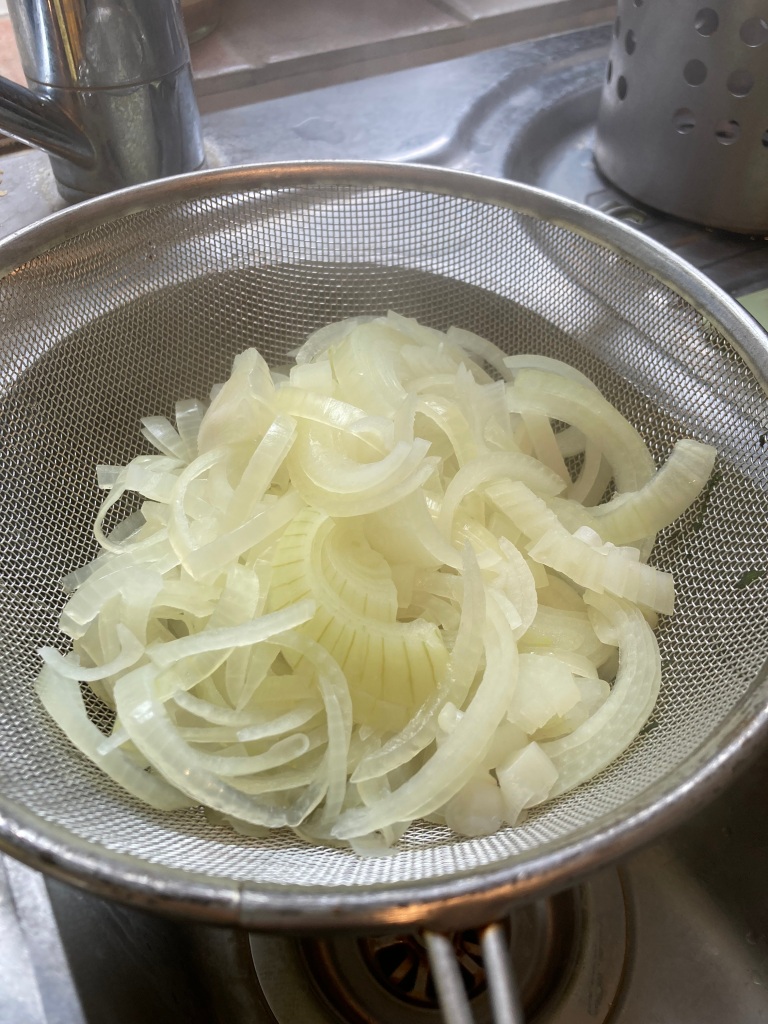
Rose: I don’t see what all of the fuss is about. It doesn’t look any bigger than the Mauretania.
Cal: You can be blasé about some things, Rose, but not about Titanic. It’s over a hundred feet longer than the Mauretania, and far more luxurious.
Twelve-year-old Miranda didn’t know that there is an African country called Mauritania, and certainly not that although its name is pronounced the same as the name of the vessel that was the largest ship in the world when it was built in 1906, it is spelt differently (the ship having been named after the ancient Roman province of Mauretania on the northwest African coast). All she knew was that James Cameron’s Titanic was (and still is) a masterpiece. Thirty-eight-year-old Miranda is conscious that we only have a handful of countries left in this challenge and she still hasn’t managed to forcibly shoehorn a Titanic reference into a blog post, so thank goodness we’ve finally found an opportunity.
And yes – ‘forcibly shoehorn’ is somewhat tautological, but honestly, it’s probably appropriate in this context.
In case anyone else needs educating about Mauritania (the country), here’s the brief rundown: it’s the 28th-largest country in the world, but 90% of its territory is in the Sahara, so population-wise it is relatively small (just over 4 million). Our trusty Lonely Planet travel book says it is characterised by endless sand, oases, desertification and birdlife.

Image from Mappr
Foodwise, dishes vary considerably from region to region. In coastal areas where there is a large fishing culture, seafood dishes are common, and the national dish of Mauritania is considered to be thieboudienne. We’d already made this for Senegal so kept looking. In doing so, we learnt that livestock farming is very important to Mauritanians, and that lamb features prominently in many traditional dishes, such as bonava, a simple lamb stew.
In this case, simple means ‘will work without being given much attention or love’ rather than quick. The stew takes 2-2.5 hours from start to finish. Very little of this time is hands-on, but one thing that is hands-on is small needy children, so Miranda (who was attempting this single-handedly with both offspring present) was very organised and wrote out a little schedule to make sure dinner got on the table on time.

Bonava
Ingredients
1kg lamb shoulder, diced
500g potatoes, peeled and cut into large pieces
3 onions, thinly sliced
1/4 cup white vinegar
2 bay leaves
1/4 cup peanut oil
Salt and pepper, to taste
Chilli powder, to taste (optional)
Boiling water
Method
1. Blanch the onions by immersing them in boiling water for 5 minutes. Drain well.
2. Heat the oil in a large pot over a low heat and saute the onions for a few minutes without browning.
3. Turn up the heat to medium-high and saute the meat until browned.
4. Add the vinegar, bay leaves, salt, pepper and chilli powder (if using).
5. Cover with boiling water, just enough to submerge the meat.
6. Cover the pot and cook for 1 hour at medium heat.
7. Add the potatoes and cook for 15 minutes over medium heat, and then a further 15 minutes over low heat.
8. Adjust seasoning and serve.
Serves 3-4

(Yes, this saucepan is too small for this job – this was an effort to save on washing up by using a pan we’d already used for something else. We just about got away with it.)






The little schedule made this even easier than it would have been otherwise. In fact, most of the early steps took even less time than we’d allowed for. This really is a ‘throw stuff in a pot and let it cook’ kind of meal, with the except of briefly sauteing the onions and lamb. Ordinarily we’d brown meat in batches, but this was all thrown in at once and this didn’t harm it at all – it was about as tender as lamb can get! As a whole, we enjoyed this a lot more than we expected to, when really all it is is lamb and potatoes, and the beautifully cooked lamb had a lot to do with that. The boys weren’t to be convinced, though: they both ate the potatoes, but Baby Mash didn’t even try the lamb and Preschooler Mash had two small pieces and then claimed not to like it.
Our only complaint is that the recipe we followed said that the dish would have ‘a delicious peanut flavour’ (from the oil, presumably) and an ‘acidic touch’ (from the vinegar). Neither of these was very obvious to us, and we’d have liked them to be more pronounced just to make it different from any other lamb stew. It’s only a small gripe, though, because we did enjoy the finished product, even if it wasn’t quite what we were expecting.
Incidentally, lamb and potatoes was one of the meals served at the last first class dinner on the Titanic, and what Rose and Cal ordered in the film (‘with very little mint sauce’). Bet you didn’t think we’d be able to bring this blog post full circle.

